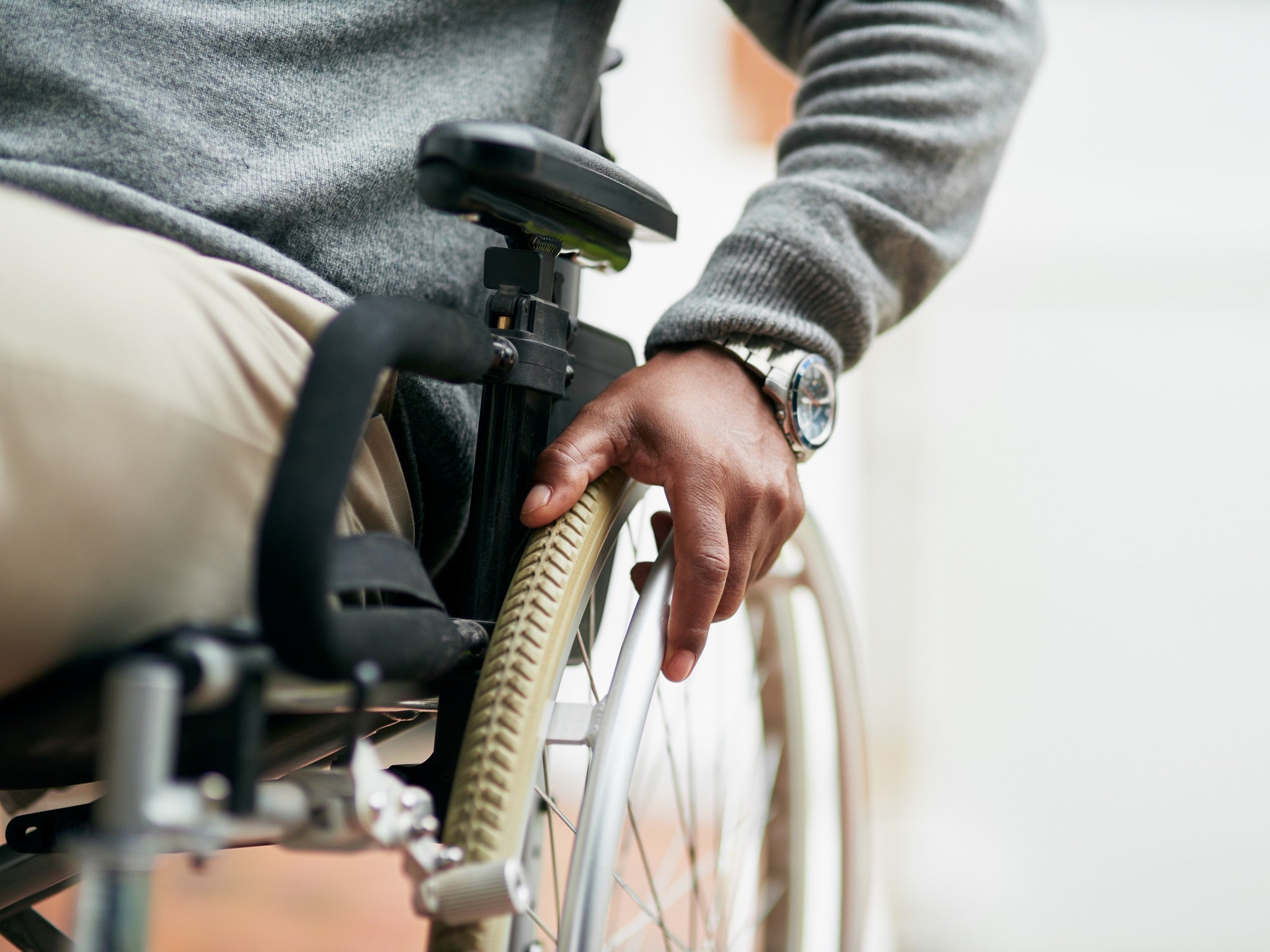There is a record number of disabled entrepreneurs in the UK. This isn't progress – it's out of necessity
The difference in employment rates between disabled and non-disabled workers stands at about 30 percentage points. This has barely changed in ten years and it is a stain on the conscience of the nation


Your support helps us to tell the story
From reproductive rights to climate change to Big Tech, The Independent is on the ground when the story is developing. Whether it's investigating the financials of Elon Musk's pro-Trump PAC or producing our latest documentary, 'The A Word', which shines a light on the American women fighting for reproductive rights, we know how important it is to parse out the facts from the messaging.
At such a critical moment in US history, we need reporters on the ground. Your donation allows us to keep sending journalists to speak to both sides of the story.
The Independent is trusted by Americans across the entire political spectrum. And unlike many other quality news outlets, we choose not to lock Americans out of our reporting and analysis with paywalls. We believe quality journalism should be available to everyone, paid for by those who can afford it.
Your support makes all the difference.Necessity is the mother of invention, so the saying goes. Perhaps that’s the reason the Stelios Awards for Disabled Entrepreneurs clocked up a record number of entries this year.
At this point you’re probably wondering what on earth I’m going on about, so I’d best explain.
The scheme is a joint project between the foundation run by EasyJet founder Sir Stelios Haji-Ioannou and the Leonard Cheshire Disability charity.
I tend to be cynical about business awards because they are often back-slapping exercises that end with the winners getting a lump of plastic and a round of applause, while the organisers pocket a healthy profit through serving up rubber chicken and overpriced, headache-inducing wine at swanky ceremonies.
This is nothing like that. The awards are a way for disabled entrepreneurs to get a cash bung to turbo charge their activities – £10,000 each for the top five, £20,000 for the winner.
There is a ceremony. But there wasn’t any rubber chicken at the last one I attended and the booze was palatable (Sir Stelios was in attendance).
The scheme is very necessary because, for too many disabled people, setting up their own businesses is the only option.
Why? They – we – find it damnably difficult to get jobs.
I keep banging on about the disability employment gap in the columns I write, and I’m going to continue banging on about it for as long as my editors will let me, because it is a disgrace.
The difference in employment rates between disabled and non-disabled workers stands at about 30 percentage points, according to the official figures. This has barely changed in 10 years and it is a stain on the conscience of the nation. It would also be a stain on the conscience of the governing Conservative Party, if it had anything resembling one.
Tepid measures such as its “Disability Confident” scheme for employers, have had only a limited impact. I’ve come across firms that have tried to use the scheme, firms that have wanted to take the plunge, only to retreat in frustration at the paper work and the lack of meaningful support they’ve been offered. So perhaps that shouldn’t come as a great surprise.
Ministers have also tried bullying people who are really too ill to work, which is certainly a good way of getting them off the benefit count. Trouble is, sanction regimes aren’t terribly successful at getting people into work as the parliamentary Work and Pensions Committee has made clear.
With some disabled people attending tens, even hundreds, of interviews with people who see the disability rather than the person, many end up setting up their own businesses because they don’t have any other option. No, that isn’t always the case, but it more than often is.
Some of these business ventures are inevitably targeted at the disabled community, which is understandable given how poorly it is served by conventional businesses. Limb Art is a nice example from the awards: It creates bespoke covers for artificial limbs.
But some are aimed at the mass market. Trevisick’s Pie started in the boot of a car and wants to take its certified palm oil-free product global.
Of course the judges, faced with 82 applicants, up 12.5 per cent, have inevitably had to leave out some very good firms. It is a competition after all.
And sure, let’s celebrate the winners.
But let’s also reflect on the fact that being an entrepreneur isn’t easy, and not everyone has the skills you need to do it well, just as not everyone has the skills to be a concert pianist or a premiership footballer.
It is quite wrong for disabled people to be forced down the route of self-employment. Those that want jobs, and are capable of doing them, should be able to get them.
You’d still need the awards, because there would still be disabled people wanting to go it alone and they would still face formidable barriers. Banks, for example, aren’t good at ponying up finance for good ideas at the best of times, let alone when the person in the small business manager’s office to talk about a loan has a wheelchair or a guide dog.
We just need to get to a place where the businesses launched by disabled entrepreneurs are, like those launched by able bodied entrepreneurs, passion products set up by people who take the plunge because they’re fed up of working for the Man rather than because they can’t.
Join our commenting forum
Join thought-provoking conversations, follow other Independent readers and see their replies
Comments